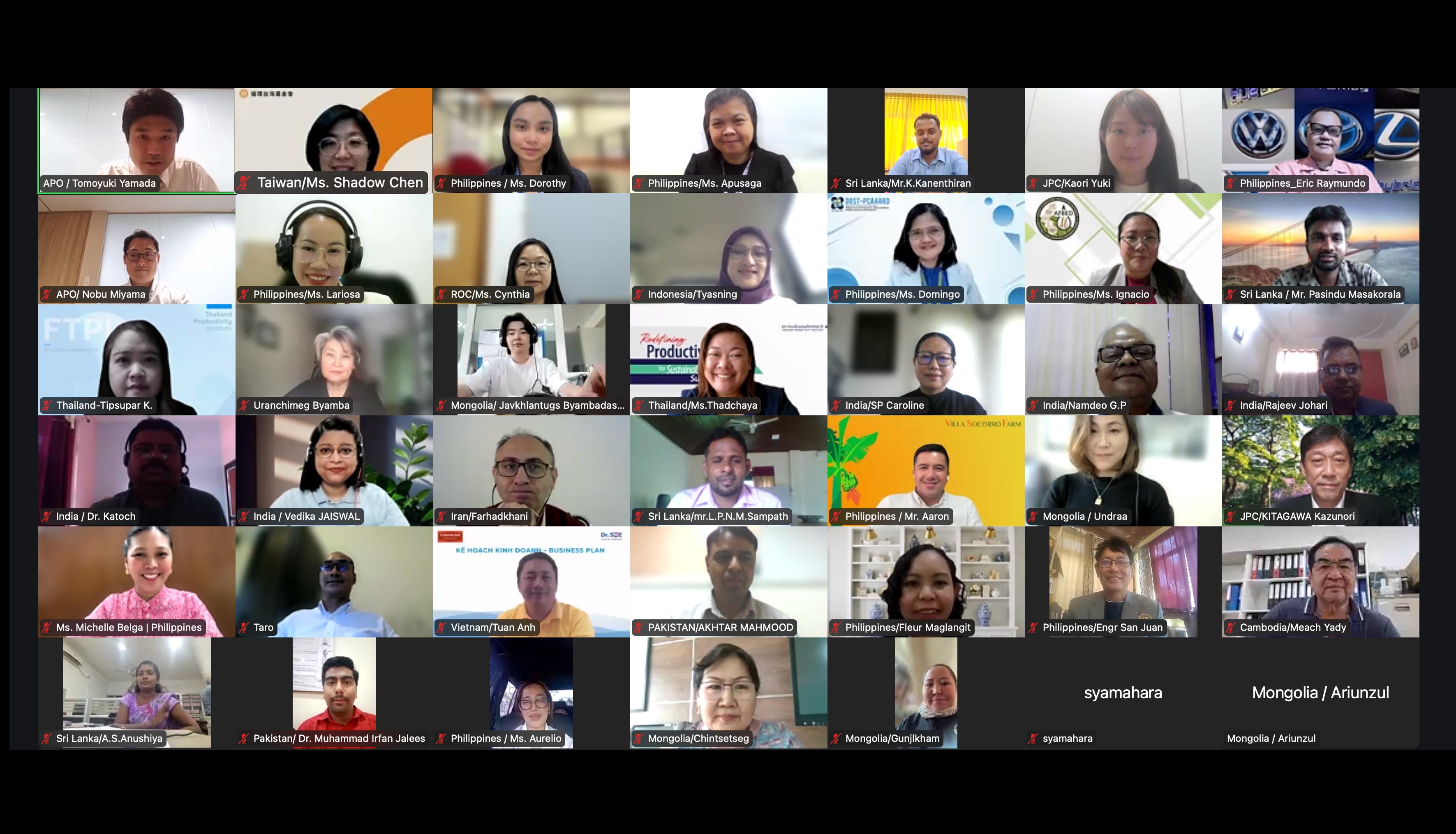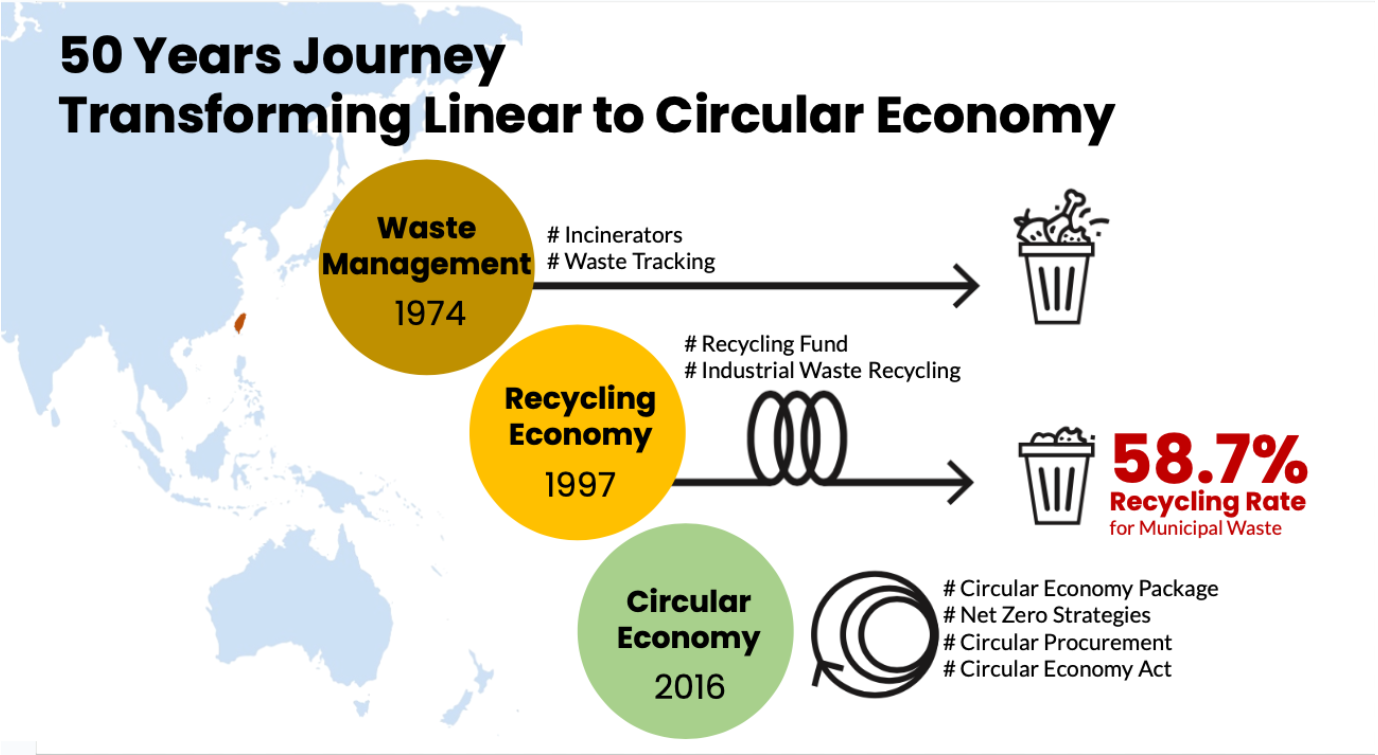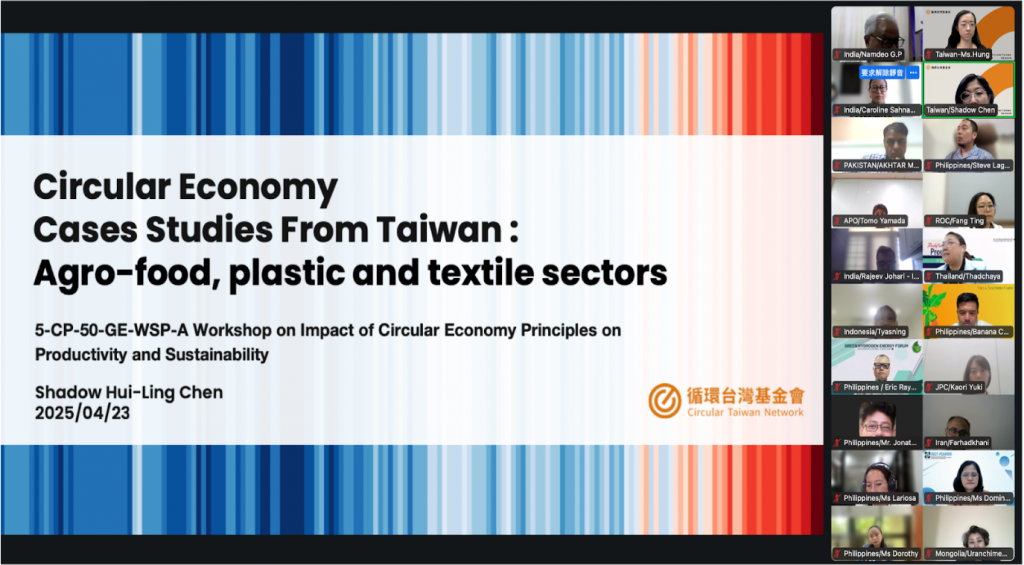To promote the implementation of circular economy principles and international exchange in the Asia-Pacific region, the Asian Productivity Organization (APO) and the Japan Productivity Center (JPC) co-hosted an online workshop from April 22–24, 2025. The three-day event brought together around 48 experts and scholars from 13 countries—including the Philippines, India, Mongolia, Iran, Sri Lanka, Bangladesh, Cambodia, Pakistan, Thailand, Vietnam, Indonesia, and Taiwan. Participants discussed global trends in the circular economy and shared their countries’ experiences and best practices.

The workshop featured keynote addresses by Mr. Kazunori Kitagawa, Director of the Center for Environmental Management at JPC, and Professor Yoshiaki Ichikawa of Tama University’s Center for Rule-Making Strategies. They shared insights into the latest global developments and practical guidance on the ISO 59000 series of circular economy standards.
Ms. Shadow Chen, CEO of the Circular Taiwan Network, was also invited to deliver a keynote presentation on Taiwan’s progress in advancing circular economy strategies. Responding to the environmental challenges of a linear economy, she emphasized that circular solutions are vital to reducing carbon emissions—especially since 45% of global greenhouse gas emissions come from resource use and 55% from energy consumption. Taiwan has introduced twelve key strategies across industries to support its 2050 net-zero carbon goals.

Day 1: Agriculture, Textiles, and Plastics
Taiwan’s agricultural sector showcased includes fully circular farm systems, high-value reuse of agricultural waste, and digital innovation to reduce emissions throughout the production, transport, and disposal stages. In textiles, efforts ranged from recycled PET yarn technology to reusing agricultural waste in high-value applications. Taiwan is also building a closed-loop “textile-to-textile” system.Addressing the plastic crisis, Taiwan promotes source reduction, biodegradable materials, and policy-driven initiatives—encouraging the use of reusable containers and circular cups. Ms.Shadow highlighted Taiwan’s globally recognized recycling system, which ranks third among cities worldwide, demonstrating its leadership in resource recovery.
Day 2: Electronics, High-Tech, Construction, and Energy
Taiwan's electronics and high-tech industries are tackling planned obsolescence by promoting shared ownership models, such as light leasing services. Companies are collaborating on modular computer designs to enhance repairability and component reuse, extending product life and enabling full lifecycle management. In construction, circular architecture is gaining ground through the use of recycled materials, modular designs, and furniture/appliance leasing. Energy sector is expanding from waste-to-energy technologies to urban shared mobility services, building green transport networks and paving the way for sustainable urban living.
This workshop highlighted Taiwan’s solid foundation and achievements in circular economy and sustainable development. Many participants expressed surprise and admiration for Taiwan’s progress and looked forward to future collaboration. At the same time, there was a shared understanding that realizing a global circular economy still requires bold transformation and collective action. Together, we must CC4CC – Collaborate for Circular Change to tackle the climate crisis.
Read more:ISO 59000
